Fires prompt calls for transparency in Russia
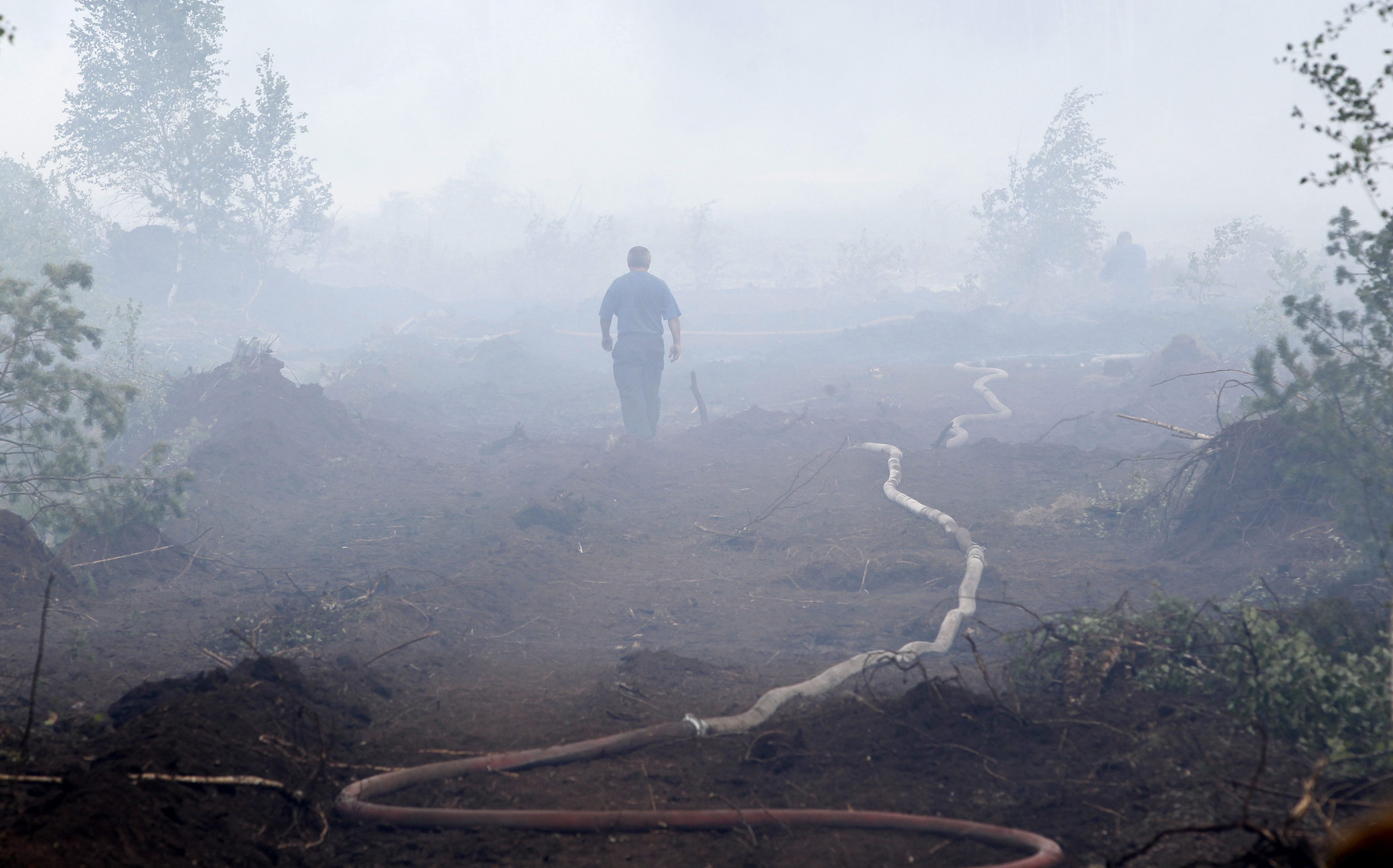
Russian wildfires have spread to areas contaminated by the Chernobyl disaster, raising concerns that Russia should be doing more to tackle the crisis.
Greenpeace Switzerland says a more transparent approach by the Russian government is needed so that the general public is better informed and outside experts can help.
The fires were sparked by the hottest summer in Russia since records began.
Environmentalists and forest experts have warned that radioactive particles in contaminated areas could be thrown into the air by wildfires and blown elsewhere by the wind.
“All information should be given to the international community. This could be more than just a Russian story. I think this is the first step towards solving the problem,” Nicolas de Roten, a nuclear expert at Greenpeace Switzerland told swissinfo.ch.
He said the radioactive particles were a direct threat to the Russian population – something the Russian government “did not want to admit” – and the fires also posed a danger to the country’s nuclear sites. A fire could damage safety systems protecting sensitive material inside nuclear sites, he noted, possibly causing explosions.
“The first thing that should be done is that the Russian government should be fully transparent about what’s going on. As long as not only the people but also international experts are not really informed about what’s going on, it is a major problem.
“To solve a problem you have to know what is going on.”
Poor resources
Russia’s emergency situations ministry said on Thursday that the area engulfed by fires around Moscow had shrunk by more than quarter in the previous 24 hours.
It said firefighters had also managed to reduce the size of other fires, but around 560 fires covering over 80,000 hectares were still burning.
The ministry said all wildfires in areas contaminated by the 1986 Chernobyl nuclear disaster had been quickly extinguished and radiation levels had remained normal.
“We can only hope that it’s true,” said Swiss German public radio correspondent Peter Gysling in Moscow.
“Intelligent people know that this is now a great show by [Prime Minister Vladimir] Putin and [President Dmitry] Medvedev. They want to give the impression of being very efficient managers of the crisis.”
But resources are lacking, he says. “Firefighters’ equipment is very, very bad. Pumps are not working. It is very disappointing that they don’t have better material. You have no good structure now to prevent and forecast [such peat fires].”
He notes that there is also a danger of fires spreading to nuclear waste areas, which are “very badly managed”. Some are only a few kilometres from current spots under flames.
Radioactive particles would most certainly be sent up into the air if the fire reached the Mayak nuclear facility, where an accident in 1957 produced serious contamination.
Should particles fall on agricultural land, they would very dangerous if ingested, Gysling has been told.
Credibility dip
Greenpeace claims the government only admitted the fires had entered contaminated areas after coming under pressure from the organisation.
Gysling, a Moscow correspondent for six years, says the government operates a “very passive, a very restrictive policy” in giving information about such problems.
“Every time Greenpeace says there are fires, the government says: ‘Yes, that’s right but we are managing that’.”
“People in Russia just accept the situation. They are waiting but not very confident [it will improve]. It is a very passive situation but of course people are very disappointed.” Indeed opinion polls of the past week show Putin and Medvedev’s credibility falling.
Game of risk
Scientists have played down health concerns. Both France’s Institute for Radiation Protection and Nuclear Safety and Germany’s Federal Office for Radiation Protection say that while some radiation was likely to be remobilised in smoke, the health risks were minimal and would have no impact on either Russia or neighbouring countries.
The World Health Organization said it had data from controlled burning experiments conducted in the region in recent years and these suggested no reason for concern.
Amid fears radioactive particles could go outside Russia, the Swiss Federal Health Office has declared there is an “extremely small risk” of any reaching as far as Switzerland.
Spokesman Werner Zeller told the French-language Le Matin newspaper that Switzerland had a network of sensors for detecting radioactivity in the air and European officials had said the risk was minimal for now.
But Greenpeace still urges caution.
“I don’t know if the situation is catastrophic or not for other countries, but there is a risk. When there is full transparency then we can really assess the situation correctly but as long as it is not the case we can assume that there is a risk and we can assume that this risk is major,” said de Roten.
He believes the situation shows states cannot hide behind an excuse that divulging information on nuclear capabilities would be a risk to national security.
“Again this shows how everything that is linked to nuclear energy is not transparent. Every time there is something somewhere in the world, an accident affecting nuclear energy, a lot of other countries can be affected. This has to stay in the people’s minds.”
Jessica Dacey, swissinfo.ch
Russia’s worst heatwave since records began has set ablaze thousands of hectares of forest, killing at least 54 people and leaving thousands homeless.
Smouldering underground fires in dried-out peat bogs blanketed Moscow in smoke, causing mortality rates to soar. Strong winds then cleared the smoke, at least temporarily.
The Kremlin declared a state of emergency in seven regions on August 2. It cancelled the state of emergency in three regions – Voronezh, Vladimir and the republic of Mari El – on August 12, after deciding it was improving.
Environmentalists have expressed fears the fires could release radioactive pollution from the 1986 Chernobyl disaster into the atmosphere as contaminated woodland in the Bryansk region southwest of Moscow caught fire. Bryansk, which borders Ukraine, was among the regions worst affected by the Chernobyl disaster, which dumped radioactive dust across Ukraine, western Russia and Belarus.
“The laboratories … are continuing to monitor the situation in the areas contaminated during the Chernobyl disaster,” said the crisis management centre at the Emergencies Ministry on its website.
A statement from Russia’s forest protection agency said fires covering an area of 39 square km had been registered in radiation-polluted regions. The deputy head of the agency said on August 11 most of the fires had been extinguished.
The overall area of Russia’s forest fires decreased by 100 square km on August 12 from 927 square km a day ago, the Emergencies Ministry statement said. More than 50,000 people were putting the fires out.
Weather forecasts could lead to more fire outbreaks but temperatures will cool gradually from August 17.

In compliance with the JTI standards
More: SWI swissinfo.ch certified by the Journalism Trust Initiative

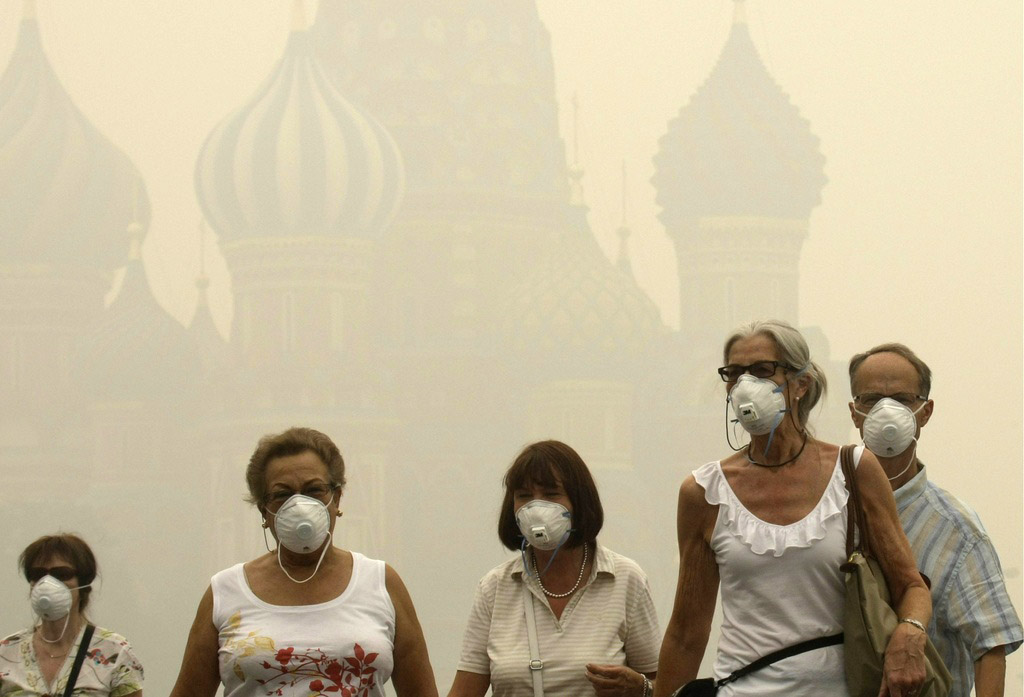
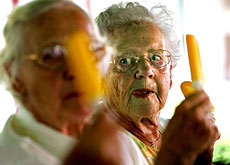
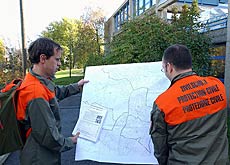
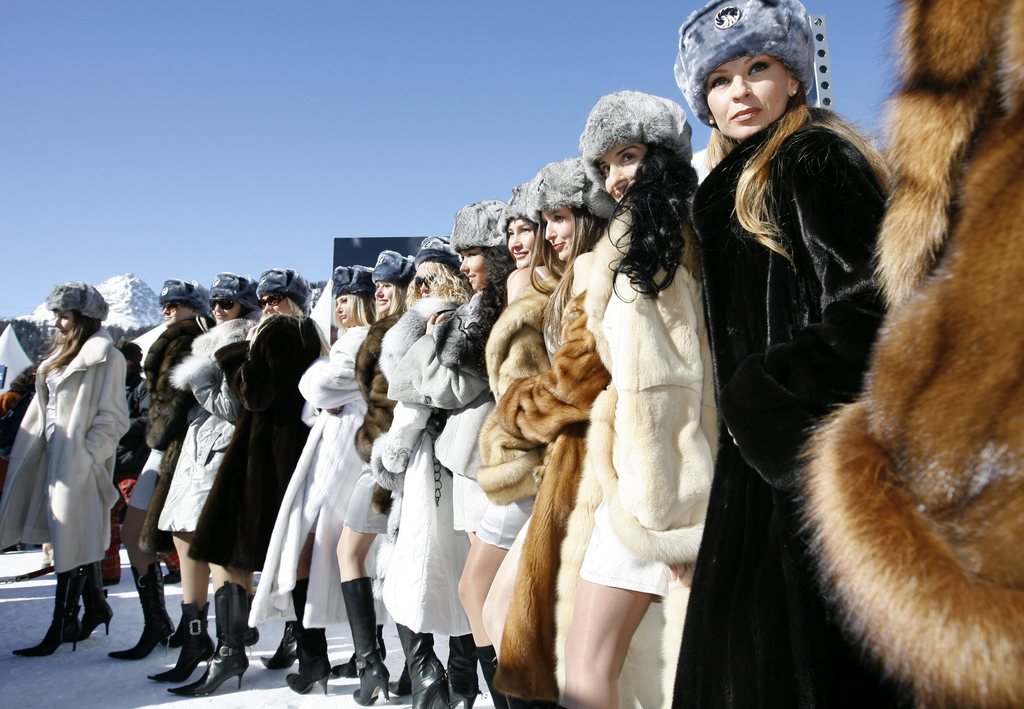
You can find an overview of ongoing debates with our journalists here. Please join us!
If you want to start a conversation about a topic raised in this article or want to report factual errors, email us at english@swissinfo.ch.